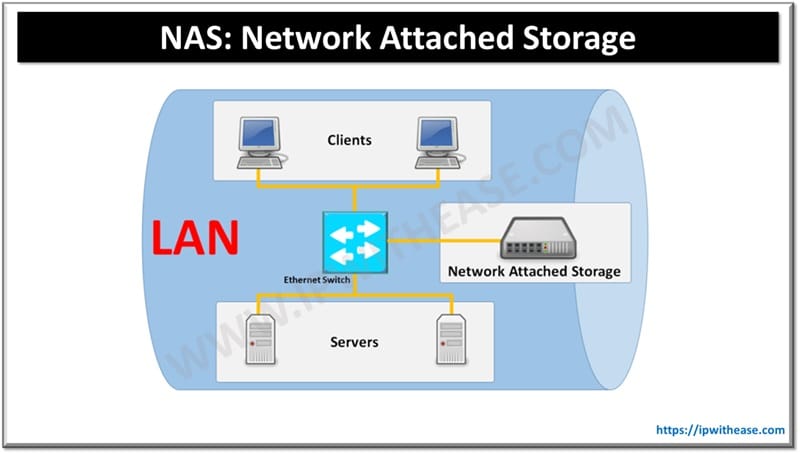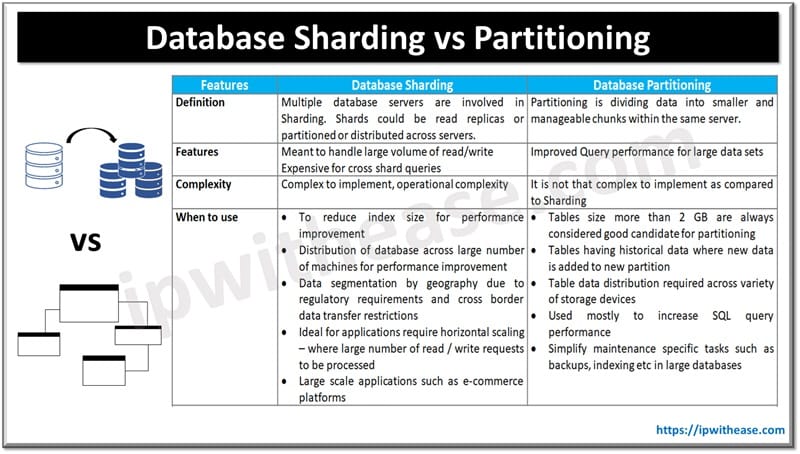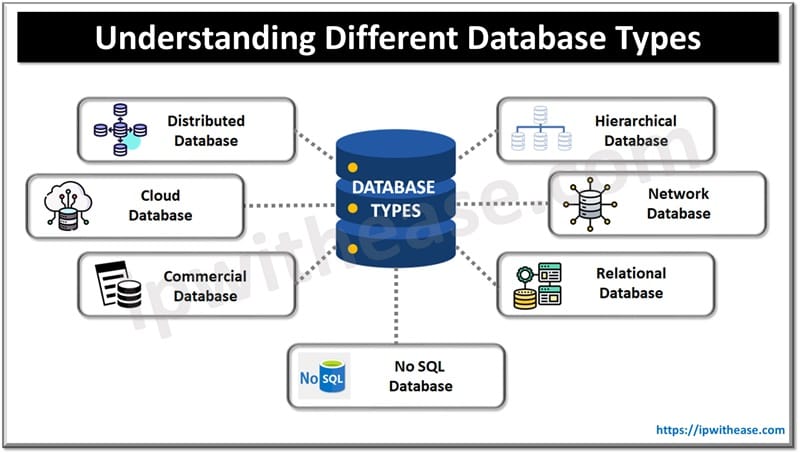Google ADs
Table of Contents
Understanding NAS
Network Attached storage (NAS) is a type of dedicated file storage device that provides local-area network local area network (LAN) endpoints with file-based shared storage through a standard Ethernet connection.

- NAS is a file-level storage technology built on top of SAN or DAS technology. We can call NAS as a type of “file server.” NAS devices are usually just regular servers with stripped down operating systems that are dedicated to file serving.
- NAS systems contain one or more hard disks, often arranged into logical, redundant storage containers or RAID arrays. NAS removes the responsibility of file serving from other servers on the network.
- NAS does “file-level I/O” as opposed to SAN which does “blocklevel I/O” over the network.
- With a NAS device, data is continually accessible, making it easy for users to meet the to customers requirements in a time and promptly. We may consider a NAS device is like a private cloud, data may be accessed remotely using a network connection, meaning employees can work anywhere and anytime.
NAS Protocols
NAS uses file-based protocols such as:
- NFS (popular on UNIX systems)
- SMB/CIFS (Server Message Block/Common Internet File System) (used with MS Windows systems),
- AFP (used with Apple Macintosh computers)
- NCP (used with OES and Novell NetWare).
Benefits of Network Attached Storage
- Multiple clients can share a single volume.
- Economical way to provide large storage to many clients.
- Much easier to setup and configure versus competitive technologies.
- Easier to provide RAID redundancy to mass amount of users
- Allows users permissions, privileges, restricted access to documents, etc.
- Higher utilization of storage resources.
Watch Related Video
ABOUT THE AUTHOR

Founder of AAR TECHNOSOLUTIONS, Rashmi is an evangelist for IT and technology. With more than 12 years in the IT ecosystem, she has been supporting multi domain functions across IT & consultancy services, in addition to Technical content making.
You can learn more about her on her linkedin profile – Rashmi Bhardwaj



